Move Your Internet Business to Cayman Islands Tax Free
Are you looking for a high quality of life, no taxes, and a cool offshore jurisdiction from which to operate your internet business? Ready to move you and your team to paradise for a few years to rake in the cash tax free? Then consider moving your internet business to Cayman Islands.
Cayman Islands had a tax deal you can’t refuse. Move to this business-friendly group of islands with its first-world infrastructure and amazing climate, and pay no taxes. You will also get a 5 year renewable work / residency visa for you, your staff, and their families. There are no restrictions on the number of workers you can bring with you and no requirement to hire locals.
Historically, visas and work permits were extremely difficult to obtain in Cayman. Securing residency previously required you to buy real estate of $500,000 to $1 million dollars and navigate river of red tape.
Because a residency permit and work visa are essential for the American to qualify for the Foreign Earned Income Exclusion, very few small businesses set up in Cayman.
Suffice it to say, those days are gone and now Cayman Islands is open for business. Today, you can relocate your internet business to Cayman Islands efficiently and without (most) of the impediments.
Moving a business to Cayman also gets you access to their world-class banks and credit card processing facilities that have been shut to Americans for several years now. Only US persons with a licensed business or a home on Cayman may open a account on the Island.
For example, to further reduce your contacts with the US, you might process credit cards through First Atlantic Commerce, a leading global online payment solutions provider. This enables you to accept payments in up to 145 world currencies in real-time on a 100% PCI-compliant platform. Merchant services include:
- Multi-currency, multi jurisdictional settlement
- Real-time processing
- Virtual Terminal
- Repeat and Subscription Billing
- Card Number Tokenization
- 3-D Secure™ (bank dependent)
- CVV2/CVC2/CID and AVS checks
- PCI Compliant gateway
We also highly recommend banking and credit card processing services from Royal Bank of Canada.
Now on to US Taxes.
Here’s how to move your business to Cayman Islands tax free. Do it right and you and your staff can earn up to $101,300 tax free in salary. That’s right, everyone who moves to Cayman with you gets $101,300 tax free. That equates to about a 35% pay increase on your first $100,000 in salary… certainly worth hanging out on a beautiful Caribbean island for a year to earn.
- You will pay US taxes on salary over $101,300. You might create defined benefit or other retirement structures to further defer tax. A small business might simply hold retained earnings tax deferred.
Even better, you and your team won’t be required to pay self employment tax or any of the US social taxes. No FICA, Medicare, or Obama taxes. That’s a savings of about 15% (7.5% to the employer and 7.5% to the employee).
Of course, you’re in business to make a profit, not just pay your employees. Any income generated by the Cayman Islands corporation can be held offshore tax deferred. If you accrue $5 million in net profits over 3 years on the island, so long as you hold them in your Cayman corporation, you won’t be required to pay US taxes.
The devil is in the details of the US tax code and I’ll get to that.
First, let me point out that I am talking about moving you and your business out of the United States and to the Cayman Islands. This is not some tax dodge using shell companies or hiding from the IRS. This is committing to the business, making the move, and earning the tax benefits.
Shell companies and offshore structures with no substance behind them are so 2000. These days, if you want to cut your US taxes, you must have employees and operations outside of the US. For most businesses, this means moving you and your workers out of the United States for a time.
Then and only then will some of the income generated by this division qualify to be held in the Cayman Islands corporation tax deferred. More on this soon….
In support of this fact, the Cayman Islands Government has granted a number of globally competitive tax holidays / tax free zones throughout the Island. They allow your businesses to establish a physical presence plus offer fast-track business licensing and visa processing. These programs attempt to eliminate the red-tape, excessive costs, and uncertainty that one would normally experience when trying to set up a business in Cayman Islands.
These tax free zones provide the following benefits:
- No corporate, income, sales or capital gains tax in Cayman Islands – tax payable in the USA is a complex matter summarized below.
- 100% foreign company ownership permitted
- A 3-4 week fast-track business licensing regime
- Renewable 5-year work/residency visas granted in 5 days
- Cutting-edge IT and business infrastructure
- Offshore hosting & payment gateway
- Minimal Government regulation
- No Government reporting or filing requirements
- A tech cluster with massive cross-marketing opportunities
- ’One-stop-shop’ Administration services
- Work visas for your staff and residency permits for your spouse and children at no additional cost.
Note that you must operate your business in one of the Island’s tax free zones to get these benefits. Also, your business must be in one of the industries to which a tax holiday is available. Qualified businesses include:
- Internet & Technology
- Media, Marketing or Film
- Biotechnology & Life Sciences
- Commodities & Derivatives
- Maritime Services
How to Maximize the US Tax Benefits of Moving Your Business to Cayman Islands
Let’s get back to the devil (the IRS) and those details.
The key to the offer in Cayman is the fact that you and your employees will receive work and residency permits on the island. In the past, these have been extremely difficult to get and required that you hire a proportional number of Cayman citizens.
As of 2016, Cayman understands that the days of the shell company are coming to an end. The government is moving to a service based offering that allows you to establish a real business with substance and employees who qualify for the Foreign Earned Income Exclusion. One that will pass muster with the IRS and allow you to minimize your US taxes.
Of course, you need to do your part to make Uncle Sam happy as well. You need to move your business, your workers, and yourself to Cayman Islands. You must reside on the island as a legal resident with a work permit (we have that covered for you), qualify for the Foreign Earned Income Exclusion, and obtain a license from one of their tax free zones.
To qualify for the Foreign Earned Income Exclusion, you need to move to Cayman for the foreseeable future, make the Island your home base, and stay out of the US approximately 8 months of the year.
- Cayman Islands should be your home base and the jurisdiction from which you operate your business. You don’t need to spend a certain amount of time on Cayman, but you do need to be out of the United States for about 8 months a year.
This allows you to earn up $101,300 in salary from your Cayman corporation tax free in the United States, avoid US social taxes, and retain net profits from your active business in the Cayman corporation tax deferred. The fact that you are structured and licensed in one of the Cayman tax free zones means you operate tax free in Cayman also.
Note that I said net profits / retained earnings in your Cayman Islands corporation will be tax deferred – not tax free – in the United States. When you will decide to take out these retained earnings from your corporation, they will be taxed in the United States. You can decide when that occurs, but you must pay Uncle Sam some day.
The Foreign Earned Income Exclusion is a complex topic, and I have merely skimmed the surface here. For more details, see:
- Foreign Earned Income Exclusion 2016
- Foreign Earned Income Exclusion Basics
- Benefits of an Offshore Company
- Eliminate U.S. Tax in 5 Steps with an Offshore Corporation
- How to Prorate the FEIE
As you read through these thrilling posts, keep in mind that we are talking about moving you and your business to Cayman. You will qualify for the Foreign Earned Income Exclusion using the residency test and not the physical presence test.
Costs of Setting Up in Cayman Islands
I’ve been working offshore since 2000 and I can tell you that Cayman Islands is without a doubt the most beautiful tax paradise. Add to this their world class services, IT infrastructure, and top legal and business talent, and it’s an amazing place from which to operate an internet business. Cayman Islands is NOT a low cost option Cayman is the Hyatt or Nieman Marcus of the offshore world, not Wal Mart or Best Western.
Cayman is one of the more expensive jurisdictions from which to run your business. You will need to pay your employees the same as you do in a major US city like Los Angeles or New York to cover the cost of living. Everything you do, from equipment to meals to lodging, will cost about the same as the United States. And everyone will want to travel back and forth to the US to escape that Island Fever.
If you are looking for one of the most beautiful and professional spots on the planet from which to operate your business, Cayman Islands is it.
If you are looking for a place that offers low cost labor and a 4% tax rate, and you have at least 5 employees, consider Puerto Rico.
If you want to maximize the value of the Foreign Earned Income Exclusion in a lower cost city, consider Panama. Yes, Panama regardless of the BS you read about the Panama Papers.
Here is a summary of the costs of setting up your business in Cayman Islands. Note that the minimum number of employees in Cayman is one. The tax benefits described here assume you (the business owner) are the first employee. You might be the only employee or you can bring with you as many support staff as you like.
The tax free zones have created turn-key offerings that include your residency visa, work permit, and office. The total cost for all of this in a shared / group space is about $1,550 per month. The minimum term of the lease is 3 years and the first year of $18,500 is due at signing.
- You can have up to two people working in the group space. If you have 3 or more employees, you will need a private office. See below.
The cost for a private office for one person with 90 to 100 sq ft., again including all permits, is about $3,000 per month on a three year contract. This includes furniture, phone system, etc. Payments are made quarterly at $9,237.50.
A three person office is $53,450 per year and a 2 person office can be either $41,250 or $49,250 per year depending on if a chooses the standard or large 2 person office. Payments are made quarterly and the minimum term is 3 years.
In addition, each resident will need to have health insurance, which starts at about $200 per person per month. Family plans are available.
And, speaking of families, there is no additional cost to bring your spouse and dependent children under 18 years of age to Cayman in this program. Their residency permits are basically processed for free and included in your office rent.
However, you might consider setting up an office and work permit for your spouse. That will allow him or her to also earn $101,300 per year tax free under the FEIE working in your family business In this way, you can double the value of the Foreign Earned Income Exclusion.
Also, your kids must be enrolled in private school in Cayman. They are not allowed to roam the streets unchecked. Private school costs about $1,300 per month and a wide range of options and price points are available.
Finally, employees are required to have some type of retirement account on Cayman after 9 months of employment. This may provide additional tax planning options.
As I said above, the cost of living in Cayman Islands will be the same or higher than a major US city. Rent in a residential neighborhood for a two bedroom will run you $2,000 to $3,000 per month. The commute would be about 20 minutes to the office. .
If you want to go big, the rent for a two bedroom on Seven Mile Beach will run you $5,000 to $6,000 per month. If you would like to scope out the area, I suggest you stay at one of the many hotels on Seven Mile.
We can have you setup and operating from Cayman Islands in about 40 days. For more information, and a quote on forming your Cayman corporation and US / Cayman tax planning, please contact me at info@premieroffshore.com or call us at (619) 483-1708.
Cayman Islands vs Puerto Rico
Allow me to close by comparing Cayman Islands to the US territory of Puerto Rico. Puerto Rico offers a tax holiday at 4%, a tax rate which is guaranteed for 20 years. The catch is that your business must move to Puerto Rico and have at least 5 employees on the island.
- If you have fewer than 5 employees, Puerto Rico is not an option. Focus on Cayman Islands or Panama.
The tax deal in Puerto Rico is very different from that of Cayman Islands. In fact, it’s the reverse of the Foreign Earned Income Exclusion described above.
In Cayman, you earn $101,300 tax free and leave the balance of the profits in the offshore corporation tax deferred.
In Puerto Rico, you draw a reasonable salary and pay tax at ordinary income rates on that money. The remaining net profits of the business are then taxed in the corporation at 4%. If you are living in Puerto Rico, you can pull these profits (less the 4%) as tax free dividends.
So, if your salary is $100,000, and your remaining profit is $2 million, you will pay about $110,000 in Puerto Rico tax (($100,000 x 30%) + ($2 million x 4%) = $110,000). This is all of the tax you will ever pay on this income.
In Cayman, the $100,000 salary is tax free. At some point, you will pay US tax at 35% on the $2 million, or $700,000. This might be years or decades in the future, but the bill will come due.
For more on this topic, take a read through Puerto Rico’s Tax Deal vs the Foreign Earned Income Exclusion.
I also note that you, as a US citizen or resident, do not need an visas or special permission to move to Puerto Rico. It’s a domestic flight and you can relocate as easily as you would from New York to Miami.
Next, your cost of labor in Puerto Rico will be 30% to 40% lower than in Cayman Islands. The same goes for your cost of living and operating the business.
Finally, Puerto Rico allows you to spend more time in the US. You should be on the island for 183 days a year, not 240 as you should with the Foreign Earned Income Exclusion using the residency test.
Conclusion
Whether you want to operate your business from an island paradise like Cayman Islands or a fiscal paradise like Puerto Rico, all tax deals these days require substance. This means a business with employees abroad adding value and working in the business.
You need to move you and your business outside of the US to maximize the benefits of the Foreign Earned Income Exclusion or of the US territorial tax offerings of Puerto Rico.
I hope you’ve found this article helpful. For more information on moving your business to Cayman Islands or Puerto Rico, please contact me at info@premieroffshore.com or (619) 483-1708 for a confidential consultation.

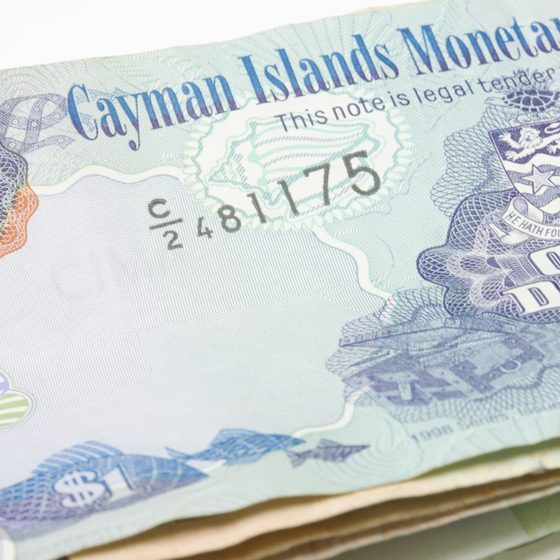


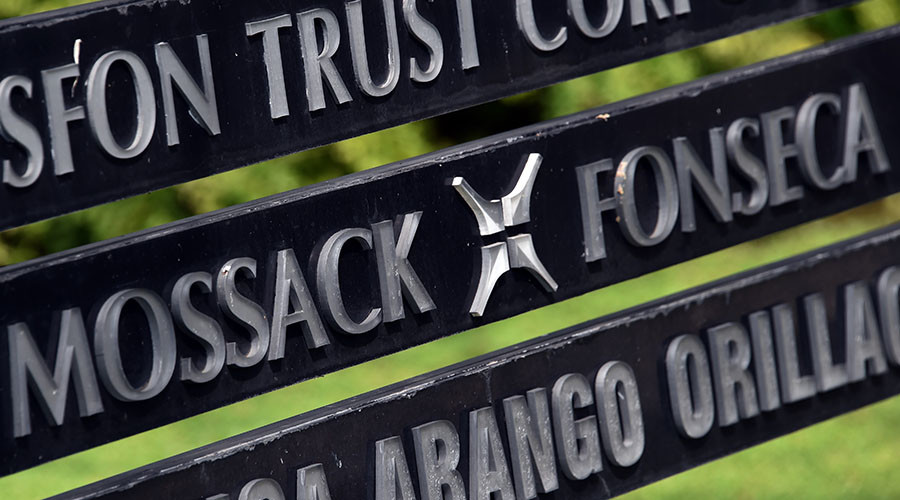
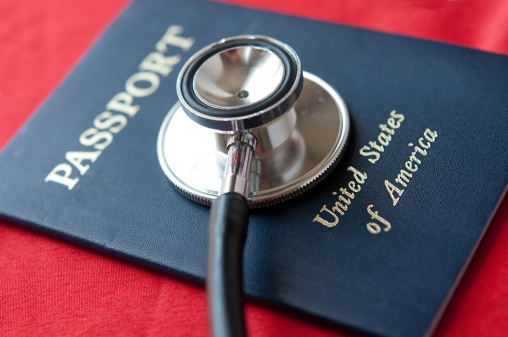
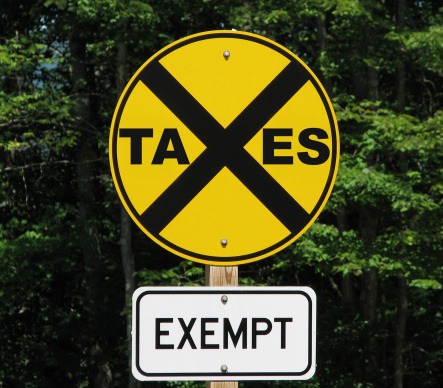




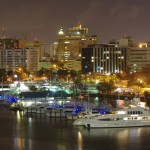
Leave a Reply
Want to join the discussion?Feel free to contribute!